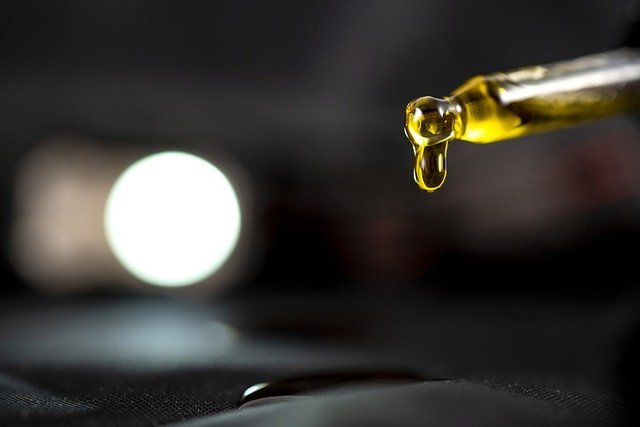CBD is arguably the most popular herbal remedy, known for its purported therapeutic benefits. According to 2022 CBD statistics, 64% of American adults are aware of the cannabinoid’s existence, but only one-third of those aware use the cannabinoid’s products.
Despite the cannabinoid’s popularity, potential consumers feel apprehensive about using CBD due to inadequate or misleading information on CBD tablets benefits and properties. CBD is a vast subject, but this post has you covered if you want to establish basic consumer information about CBD. Below are five essential facts everyone should know about CBD.
CBD is non-Psychoactive
CBD is one of the two psychoactive compounds present in the cannabis plant. However, CBD has zero psychoactive effects, unlike its more famous cannabinoid sister, delta-9 THC. Therefore, if your apprehension about CBD stems from the fact that it is a cannabis compound, don’t worry because it won’t get you “high.”
The primary difference between CBD and delta-9 THC lies in how each interacts with the body. Both cannabinoids deliver their effects by interacting with various endogenous cannabinoid system (ECS) receptors. The ECS or endocannabinoid system is an elaborate body signaling system that permeates the spinal cord and the central and peripheral nervous systems and modulates multiple body functions, maintaining homeostasis.
ECS receptors, predominantly CB1 and CB2 receptors, are present throughout the spinal cord and the nervous systems. According to a study on the anatomical distribution of cannabinoid receptors, the brain has a higher CB1 concentration. On the other hand, the rest of the spinal cord and the peripheral nervous system have a higher CB2 concentration.
According to research review on cannabinoids and the central nervous system, delta-9 THC has a high binding affinity to CB1 receptors. Researchers posit that the THC’s binding capacity and high affinity to CB1 receptors intensely stimulates the receptors, leading to psychoactive effects, given that CB1 receptor concentration is higher in the brain.
CBD is unique because it has a negligible affinity to endocannabinoid receptors. However, CBD stimulates both CB1 And CB2 receptors, although its mechanism of action in stimulating the said receptors remains unknown. Therefore, CBD’s capacity to indirectly stimulate ECS receptors means it can deliver its therapeutic effects without causing a “high.”

Image Source: Pixabay.com
CBD Products Can Contain Up To 0.3% THC
The cannabis plant features two main subspecies, hemp, and marijuana. People may erroneously use hemp and marijuana as synonyms, but the two are different plants with different phytochemical compositions. The hemp plant has higher CBD concentrations, although it contains other minor cannabinoids (including THC), while marijuana has a higher delta-9 THC concentration.
Initially, the DEA classified hemp and marijuana as schedule 1 substances under the Controlled Substance Act. However, things changed in 2018 after the 2018 Farm Bill passed into law. The 2018 Farm Bill legalized the cultivation, production, and distribution of hemp products with a THC content not exceeding 0.3% THC.
Hemp plants are CBD-dominant, but they feature other cannabinoids, including a THC content of approximately 0.3%. Full-spectrum CBD products feature a hemp extract containing about 0.3% THC.
The 0.3% THC in such products is nowhere near adequate to make anyone “high.” If you are opposed to THC, you may consider purchasing broad-spectrum CBD or CBD isolate for zero THC content. Also, ensure the CBD products you buy are hemp-sourced because CBD sourced from marijuana is illegal before the law, despite being similar to hemp-derived CBD.
CBD Oil and Hemp Seed Oil Are Two Different Products
You may come across products labeled hemp seed oil when shopping for CBD products. However, CBD oil and hemp seed oil are two different products. Although the hemp plant is CBD-dominant, only its flowers, leaves, and stalks contain CBD and other cannabinoids.
Hemp seed oil comes from hemp seed and has zero cannabinoid content, meaning it contains zero CBD. It is an excellent nutritional supplement rich in omega-3 fatty acids, with numerous nutritional benefits. Regardless, hemp seed oil does not offer CBD’s therapeutic effects because it does not contain CBD.
- CBD Does Not Typically Show Up in A Drug Test
Standard drug tests only test for schedule 1 substances, including the delta-9 THC in marijuana. Such tests do not test for the chemical in question, but test for the metabolites or byproducts realized after the body breaks down specific controlled substances. Moreover, they do not test for CBD’s metabolites because the cannabinoid is not a controlled substance.
The THC metabolites resulting from the THC content in full-spectrum CBD can appear in a drug test. Therefore, you may want to steer clear of full-spectrum CBD products if you live in a state where delta-9 THC is illegal. The same is advisable if you are in a profession where your employer can subject you to random drug tests.
Animals Can Also Benefit from CBD’s Therapeutic Effects
One veterinary information network survey conducted among over 2000 certified US veterinary doctors concluded that 61.5% of the participants are comfortable with CBD in veterinary medicine practice. Moreover, one market research on CBD pet products estimates the global CBD pet market size at $125 million.
Therefore, your pet can also benefit from CBD’s therapeutic effects, and the CBD market is full of pet products, especially for dogs.
Conclusion:
CBD is an effective natural health remedy worth adding to your health regimen. However, product knowledge is important, given that the CBD industry is highly unregulated, leaving room for misinformation.

